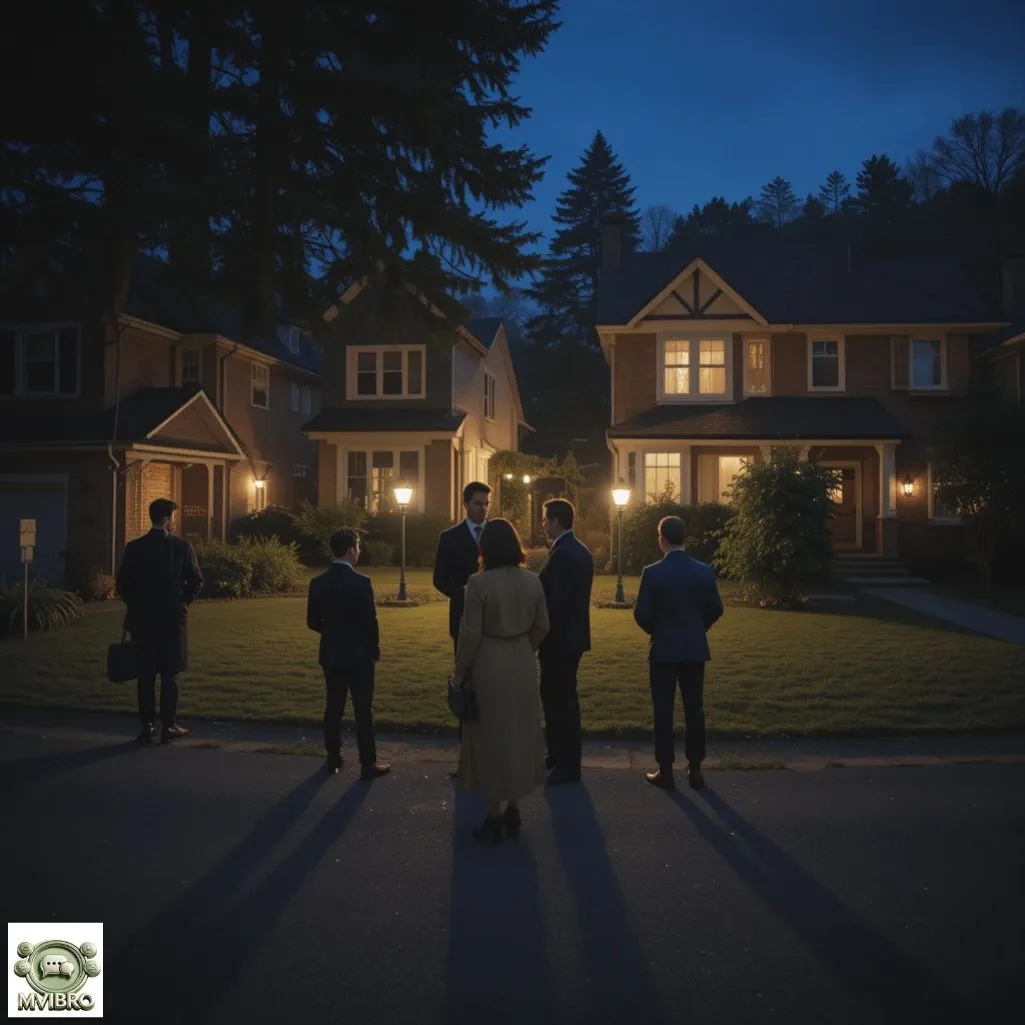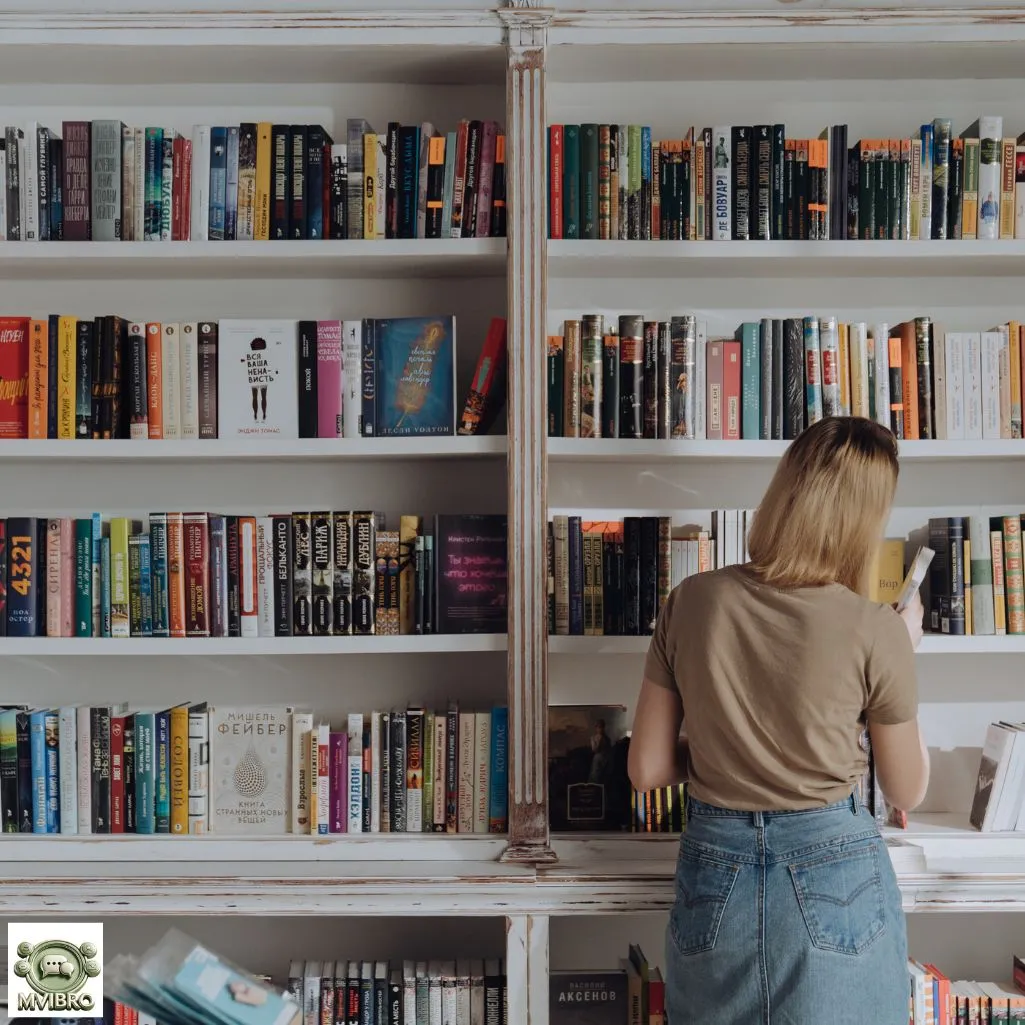“Boredom is a call for adventure, creativity, and meaningful engagement.”
Boredom strikes everyone at some point, leaving them yearning for something new and exciting. It’s a blank canvas waiting to be filled with meaningful activities and fresh ideas. When it’s a rainy day at home or a lull in the usual routine, boredom offers an opportunity to explore untapped interests. Instead of ignoring it, we can turn boredom into a chance for growth and enjoyment.
Are you tired of the same old answers to “I’m bored”? Let’s break the cycle of dullness with activities and ideas that inspire creativity, deepen connections, and recharge the spirit. Explore this guide to find actionable solutions that will keep boredom at bay. It’s time to fill the void with fun, purpose, and innovation!
When boredom knocks, the answer lies in variety and adventure. From creative outlets to outdoor exploration, this post will arm you with engaging suggestions tailored to spark excitement and fulfill curiosity. Dive into these unique, boredom-busting ideas and never run out of fun again!
list of Respond When Someone Says “I’m Bored”
- Activity Suggestions
- Entertainment Ideas
- Social Interaction Ideas
- Creative Outlets
- Self-Care and Relaxation Ideas
- Learning Opportunities
- Outdoor Activities
- Games and Challenges
- Organizing and Planning Ideas
- Reflective and Philosophical Ideas
- DIY Projects
- Cooking and Baking Ideas
- Gardening and Nature Activities
- Music Exploration Ideas
- Virtual Exploration Ideas
- Puzzles and Brain Teasers
- Crafting and Hobbies
- Online Communities
- Documenting and Organizing Ideas
- Mindfulness and Journaling
Activity Suggestions
- Plan a themed scavenger hunt.
- Learn basic origami techniques.
- Host a trivia night with friends.
- Create a vision board for future goals.
- Explore a local museum or gallery.
- Start a book club or discussion group.
- Try a new workout routine.
- Experiment with digital art tools.
- Organize a “no phones” evening challenge.
- Build a fort with pillows and blankets.
- Explore a nearby hiking trail.
- Plan a backyard picnic or stargazing night.
- Create a photo album of cherished memories.
- Learn basic sign language phrases.
- Make a time capsule to open years later.
Entertainment Ideas
- Watch a documentary on a topic you’ve never explored.
- Try a new podcast series.
- Host a movie marathon with a genre theme.
- Play classic board games with a twist.
- Try karaoke with your favorite songs.
- Watch live-streamed performances or events.
- Explore indie or foreign films.
- Plan a night of stand-up comedy clips.
- Challenge yourself to a video game tournament.
- Attend a local theater production.
- Organize a “guess the plot” game with random movies.
- Watch YouTube tutorials on hidden talents.
- Listen to an audiobook while relaxing.
- Explore short films or animations online.
- Host a virtual watch party with friends.
Social Interaction Ideas
- Organize a group dinner where everyone brings a dish.
- Call an old friend for a long chat.
- Join a local club or interest group.
- Volunteer at a community event.
- Host a game night with neighbors.

- Share stories at an open mic night.
- Write and send letters to loved ones.
- Plan a potluck with a specific theme.
- Try speed networking or friend-making events.
- Learn cultural dance steps with others.
- Organize a photo scavenger hunt in your city.
- Help a neighbor with a small project.
- Start a debate club for casual discussions.
- Attend free workshops or events nearby.
- Explore public speaking opportunities.
Creative Outlets
- Start a journal or diary to document your thoughts.
- Try painting or sketching, even if you’re a beginner.
- Write poetry or short stories based on random prompts.
- Make your own handmade greeting cards.
- Explore photography with a unique theme, like shadows or patterns.
- Create a playlist that reflects your current mood.
- Try calligraphy or lettering styles.
- Learn to knit, crochet, or sew small items.
- Experiment with clay or sculpting materials.
- Design your own comic strip or graphic novel.
- Create a stop-motion animation using household items.
- Build a scrapbook filled with your favorite memories.
- Write a song or compose music using apps.
- Make handmade jewelry or accessories.
- Learn a new language through art, like drawing vocabulary words.
Self-Care and Relaxation Ideas
- Meditate for 10– minutes in a quiet space.
- Take a warm bath with soothing oils or salts.
- Listen to calming sounds or ASMR recordings.
- Try a facial mask or a skincare routine.
- Practice deep breathing or yoga stretches.
- Light scented candles and enjoy a moment of peace.
- Enjoy a cup of herbal tea while reading.
- Write affirmations or gratitude lists.
- Color in an adult coloring book.
- Pamper yourself with a DIY manicure or pedicure.
- Go for a nature walk to clear your mind.
- Practice progressive muscle relaxation techniques.
- Listen to audiobooks with a soothing voice.
- Create a calming space with cozy blankets and soft lighting.
- Disconnect from devices for a digital detox.
Learning Opportunities
- Take a free online course in a new subject.
- Read articles or books about a topic that fascinates you.
- Watch educational videos on platforms like YouTube.
- Listen to podcasts about science, history, or personal growth.
- Learn a new language using apps or websites.
- Research a historical event or figure.
- Master basic coding through beginner-friendly resources.
- Explore online workshops or webinars.
- Study cooking techniques or recipes.

- Learn to play a musical instrument.
- Read about financial literacy and money management.
- Practice writing essays or creative pieces.
- Explore space through virtual astronomy tools.
- Learn to read body language and improve communication skills.
- Dive into philosophical questions and debates.
Outdoor Activities
- Go for a hike in a nearby park or trail.
- Try birdwatching with a guidebook or app.
- Plan a picnic with your favorite snacks.
- Explore local landmarks or attractions.
- Go cycling or rollerblading in your neighborhood.
- Visit a botanical garden or nature reserve.
- Set up an outdoor painting or drawing station.
- Fly a kite in an open field.
- Try geocaching to discover hidden treasures.
- Plant flowers or vegetables in your garden.
- Watch the sunrise or sunset.
- Play outdoor sports like frisbee or badminton.
- Take a leisurely walk and listen to nature sounds.
- Organize a cleanup drive in your community.
- Build a bonfire and enjoy storytelling or marshmallow roasting.
Games and Challenges
- Solve a challenging jigsaw puzzle.
- Play chess, checkers, or card games with friends.
- Try trivia quizzes on a fun topic.
- Engage in virtual escape room games.
- Attempt Sudoku or crossword puzzles.
- Play charades with a twist.
- Host a mini obstacle course competition.
- Try scavenger hunts with unique themes.
- Play online multiplayer games with friends.
- Challenge yourself to a DIY maze or riddle.
- Participate in speed-building Lego challenges.
- Create and complete a word search puzzle.
- Play “Would You Rather” or “20 Questions.”
- Design your own board game with simple rules.
- Test your reflexes with fast-paced memory games.
Organizing and Planning Ideas
- Declutter a room or workspace for a fresh start.
- Plan a weekly or monthly schedule using a planner.
- Organize your wardrobe and donate unused clothes.
- Rearrange furniture to refresh a room’s look.
- Create a budget and track your expenses.
- Plan your dream vacation, even if it’s just for fun.
- Sort digital files and photos on your devices.
- Organize your bookshelves by color, genre, or author.
- Make a to-do list for upcoming goals.
- Set up a vision board for long-term aspirations.
- Plan a themed party or gathering.
- Label pantry or storage items for easy access.
- Create a meal prep or grocery shopping list.
- Draft a morning or evening routine.
- Make a list of short- and long-term career goals.
Reflective and Philosophical Ideas
- Write a letter to your future self.
- Reflect on your achievements and lessons learned.
- Think about your purpose and passions.
- List the things you’re grateful for in life.
- Contemplate and define your core values.
- Read inspirational quotes and analyze their meanings.
- Write about your happiest memories.
- Ponder philosophical questions like “What is happiness?”
- Create a list of books or movies that impacted you.
- Journal about what makes you unique.
- Reflect on how you’ve grown over the years.
- Think about the legacy you want to leave behind.
- Write a list of people who inspire you and why.
- Contemplate how you can positively impact others.
- Meditate on what brings you peace and fulfillment.
DIY Projects
- Build your own birdhouse or feeder.
- Create custom photo frames.
- Make homemade candles or soaps.
- Design a piece of wall art using string or fabric.
- Repurpose old clothes into new items.
- Create a hanging herb garden.
- Build a mini terrarium with plants and decorations.
- Customize your phone case with unique designs.
- Make a memory jar with notes or photos.
- Craft your own bookmarks or coasters.
- Paint or decorate flower pots.
- Try tie-dye techniques on old T-shirts.
- Make personalized gift wraps or greeting cards.
- Build a small shelf or piece of furniture.
- Create homemade bath bombs with scents you love.
Cooking and Baking Ideas
- Try a new recipe from a different cuisine.
- Bake cookies and experiment with flavors.
- Learn how to make homemade pasta.
- Create your version of a famous dish.
- Try baking bread or making pizza dough from scratch.
- Decorate cupcakes with intricate designs.
- Make your own ice cream or sorbet.
- Prepare a full-course meal for yourself or loved ones.
- Learn how to make fancy coffee drinks at home.
- Try food plating techniques to make dishes Instagram-worthy.
- Experiment with meal-prep ideas for the week.
- Cook using only ingredients you have at home.
- Create a charcuterie board with unique combinations.
- Make homemade jams or pickles.
- Bake a layered cake and decorate it creatively.
Gardening and Nature Activities
- Start a small vegetable or herb garden.
- Plant flowers that attract pollinators like bees or butterflies.
- Learn about indoor plants and their care.
- Compost kitchen scraps for eco-friendly gardening.
- Create a fairy garden with miniature decorations.
- Identify plants, trees, and flowers in your neighborhood.
- Build a DIY vertical garden.
- Grow succulents or cacti indoors.
- Harvest seeds from fruits or flowers to plant.
- Make a natural birdbath or feeder for your garden.
- Research landscaping ideas and plan a project.
- Start a nature journal to document changes in your garden.
- Arrange dried flowers for decorative purposes.
- Build a small greenhouse or cold frame.
- Spend time watering and pruning plants while enjoying fresh air.
Music Exploration Ideas
- Create a playlist of your favorite songs from different genres.
- Learn to play a new instrument, like a ukulele or keyboard.
- Explore lesser-known artists or indie music on streaming platforms.
- Write your own lyrics and compose a melody.
- Practice karaoke with your favorite tracks.
- Try producing music using digital tools or apps.
- Explore classical music and its history.
- Listen to podcasts about famous musicians or music eras.
- Create a mashup of your favorite songs.
- Experiment with beatboxing or vocal exercises.
- Learn a cultural or traditional dance to match specific music.
- Play rhythm games or apps to enhance your timing.
- Watch live concerts or performances online.
- Discover and learn about music from other cultures.
- Record your voice or instrument and share it with others.
Virtual Exploration Ideas
- Tour famous museums online, such as The Louvre or The Met.
- Visit virtual zoos or aquariums to learn about wildlife.
- Explore outer space using interactive astronomy apps.
- Walk through historical landmarks with 360-degree virtual tours.
- Discover new cities using Google Earth or Maps.
- Attend free webinars or live events online.
- Dive into online archives to explore ancient manuscripts.
- Watch documentaries on different cultures and histories.
- Take virtual cooking classes with global cuisines.
- Explore underwater life with virtual diving experiences.
- Play online multiplayer games that simulate real-life adventures.

- Watch travel vlogs and learn about unique destinations.
- Join virtual book clubs or discussion groups.
- Visit online art galleries and exhibitions.
- Attend virtual workshops or training in creative fields.
Puzzles and Brain Teasers
- Solve challenging Sudoku puzzles.
- Try crossword puzzles from your favorite magazines or apps.
- Assemble a 3D puzzle model.
- Play escape room games online or in person.
- Work on riddles or logic puzzles for mental stimulation.
- Solve brainteasers involving math or patterns.
- Attempt a Rubik’s cube or other twisty puzzles.
- Play word games like Scrabble or Boggle.
- Find hidden objects in themed puzzle games.
- Try “spot the difference” challenges.
- Create your own puzzles and challenge friends.
- Play chess or other strategy games online.
- Work on a large jigsaw puzzle as a group activity.
- Explore lateral thinking puzzles for unique solutions.
- Test your memory with matching card games.
Crafting and Hobbies
- Create DIY bookmarks with recycled materials.
- Start a knitting or crochet project.
- Build a model airplane or car kit.
- Design and sew your own tote bags or pillowcases.
- Make friendship bracelets with colorful threads.
- Paint or decorate glass jars for storage.
- Try wood carving or whittling small items.
- Build a miniature dollhouse or model.
- Decorate candles or make custom holders.
- Learn origami and create intricate paper designs.
- Make a DIY photo collage or vision board.
- Explore macramé techniques to create wall hangings.
- Upcycle old items into new creations.
- Start a collection, like coins or stamps.
- Decorate seasonal items like pumpkins or holiday ornaments.
Online Communities
- Join forums dedicated to your hobbies or interests.
- Participate in virtual book clubs and share reviews.
- Engage in online trivia nights or game tournaments.
- Contribute to Reddit threads or interest-based subreddits.
- Join Facebook groups related to your passions.
- Attend live streams with Q&A sessions.
- Explore Discord servers for discussions and fun.
- Take part in collaborative online projects.
- Join free webinars or virtual conferences.
- Share your creations in online art or writing communities.
- Participate in fitness challenges hosted by online groups.
- Explore volunteer opportunities through online platforms.
- Connect with others in language exchange programs.
- Join forums or groups that focus on mental well-being.
- Create your own online community around a niche topic.
Documenting and Organizing Ideas
- Create a daily or weekly planner.
- Document your life with a photo journal.
- Organize old photos into albums.
- Write a timeline of significant life events.
- Sort through your emails and declutter your inbox.
- Keep track of your habits using a tracker.
- Organize your bookshelf by genre or color.

- Start a blog or personal website.
- Create a playlist for different moods or tasks.
- Sort and back up important digital files.
- Record family recipes in a special book.
- Develop a system for tracking your goals.
- Compile a list of your favorite quotes or sayings.
- Organize your closet and donate unused clothes.
- Maintain a gratitude journal to reflect on positive moments.
Mindfulness and Journaling
- Write morning pages to clear your mind.
- Practice guided meditation for relaxation.
- Write affirmations to boost self-esteem.
- Reflect on your day with a gratitude journal.
- Explore mindfulness coloring books.
- Write down your dreams and analyze them.
- Practice mindful breathing exercises.
- Create a bucket list of goals or experiences.
- Write about your emotions and how you handle them.
- Engage in sensory awareness by focusing on your surroundings.
- Record moments of joy or laughter in a happiness journal.
- Practice progressive muscle relaxation while journaling.
- Write letters to people you admire (even if you don’t send them).
- List and visualize positive affirmations daily.
- Track your personal growth and achievements over time.
Understanding the “I’m Bored” Statement
It’s essential to recognize that the phrase “I’m bored” often signals more than just a lack of activity. People can express boredom for various reasons, from feeling disconnected to being overwhelmed by unstructured time. Understanding this underlying message can provide valuable insight into how to respond thoughtfully and positively.
Boredom is often misunderstood as a mere state of laziness. However, when approached properly, it can reveal an opportunity to help someone break free from mental stagnation or guide them toward more fulfilling activities. Responding to “I’m bored” involves a nuanced understanding of its potential as a signal for deeper needs or emotions.
By examining the phrase more closely, we can provide the right tools or suggestions to counteract the feeling of boredom. It’s not simply about offering distractions but fostering a mindset shift that transforms boredom into a positive, engaging experience.
- It’s Not Always About Boredom
Sometimes, “I’m bored” doesn’t truly indicate a lack of things to do. Instead, it might express a deeper emotional need or frustration. When we hear this statement, it’s important to consider the broader context—whether it’s stemming from restlessness, a feeling of disconnection, or just a momentary lapse in interest.
While it might seem like someone is just looking for something to do, the feeling of boredom can reflect emotional or mental states that go beyond the surface. Offering support can help uncover these deeper needs, allowing for a more empathetic response rather than just providing a solution.
- Boredom as a Gateway to Creativity
Surprisingly, boredom can be an excellent trigger for creativity. When our minds are not occupied with constant stimulation, they have the space to wander, leading to new ideas and solutions. Boredom can spark curiosity and open doors to creative thinking that we may otherwise miss when we’re too busy or distracted.
Instead of seeing boredom as a negative state, consider it as an invitation for exploration. Many creative individuals claim that their best ideas arise from moments of stillness or boredom, making it a key time for potential innovation and inspiration.
Encourage Self-Reflection
Encouraging self-reflection can help someone dig deeper into why they feel bored and what might be missing in their lives. By engaging in introspection, they can identify what they truly enjoy or feel passionate about, which can guide them toward more meaningful activities.
Instead of offering instant solutions, create space for someone to reflect on their boredom. Ask guiding questions like, “What would make this moment feel more exciting or meaningful to you?” This opens up possibilities for self-discovery and personal growth.
- Ask Them Why They’re Feeling Bored
When someone says they’re bored, it can be useful to ask them to explore why they’re feeling that way. Are they uninterested in their current environment, or is there something deeper bothering them? Understanding the root cause of boredom can provide clues about how to address it effectively.
By asking open-ended questions about their feelings or thoughts, you can help them articulate their emotions. This often leads to more self-awareness and can open the door to finding an activity that truly resonates with them.
- Help Identify Their Emotions
Boredom can sometimes mask other emotions like frustration, loneliness, or anxiety. Helping someone identify these feelings can lead to more productive conversations about how they can address the underlying causes. Recognizing emotions such as these can provide insight into what the person truly needs or desires.
A good way to help is by encouraging emotional expression. You might ask questions like, “Do you think there’s something specific that’s making you feel this way?” This can lead to valuable conversations about managing emotions in healthier, more fulfilling ways.
Suggest Active Engagement
Offering suggestions for active engagement can break the cycle of boredom and help someone shift their focus. Active engagement might involve physical movement, mental challenges, or hands-on tasks that require focus and energy. Such activities can re-energize a person and make them feel more alive and connected.
Encourage them to take part in something dynamic that involves both the mind and body. Activities like dancing, crafting, or going for a walk can boost mood, stimulate creativity, and restore a sense of purpose to the day.
- Offer Physical Activities to Break the Stagnation
Physical activities are excellent tools to break boredom. Engaging in some form of exercise or movement helps refresh both body and mind, releasing endorphins and improving overall well-being. It’s a great way to get out of a rut and combat feelings of stagnation.
Suggest activities like yoga, stretching, or even a short jog. These are simple yet effective ways to reinvigorate the body and refocus energy, which can instantly lift a person’s spirits and help combat boredom.
- The Power of Going for a Walk
Going for a walk can do wonders for clearing the mind and breaking up the monotony of the day. Walking outdoors, especially in nature, provides a refreshing change of scenery, stimulates the senses, and offers a quiet space for contemplation. It’s an easy, low-impact way to reset and recharge.
Encourage the person to step outside for a short walk, whether it’s through a park, around the block, or even just down the street. The change of environment often leads to new perspectives, creative ideas, and a renewed sense of calm.
Get Creative Together
When boredom strikes, collaborating on creative projects can be a fun and productive way to engage. Working together on DIY projects, artistic endeavors, or brainstorming sessions can spark new ideas and foster a sense of connection between individuals.
Instead of letting boredom take over, why not team up to create something meaningful? The act of collaborating can lift the spirits, foster teamwork, and help the person feel more involved and excited about the process.
- Collaborative DIY Projects
Engaging in DIY projects as a group can be a rewarding way to spend time. These projects allow everyone to contribute ideas and efforts, making the process more enjoyable and communal. Whether it’s creating handmade gifts, designing home decor, or working on repairs, there’s a sense of achievement in completing something together.
Encourage them to join in on a DIY activity, like creating custom t-shirts, painting a mural, or building a small piece of furniture. The possibilities are endless, and it provides both a challenge and an opportunity for creative expression.
- Brainstorming Fun Ideas
Sometimes, brainstorming together can help overcome boredom by generating exciting ideas for things to do. When two or more people collaborate to come up with creative solutions, they often come up with even better ideas than they would have on their own. It’s a great way to tap into collective creativity.
Gather a group and start brainstorming for things like weekend plans, new hobbies, or activities you can all do together. This collaborative effort can make even the most ordinary activities feel new and exciting.
Introduce New Hobbies or Interests
One of the best ways to combat boredom is to explore new hobbies or interests. Trying something new can provide a fresh perspective and reinvigorate enthusiasm for life. A new interest can serve as a long-term solution to boredom, offering a continuous source of joy and engagement.
Introduce new hobbies like knitting, birdwatching, or photography. Even if they’re not initially interested, exploring something different can lead to unexpected passions and open new doors to exciting experiences.
- Explore a New Skill
Learning a new skill can be both fun and fulfilling. Boredom often arises when we feel like we’ve mastered everything we know or don’t have challenges left. Introducing a new skill to learn can reignite curiosity and drive.
Consider introducing a skill like coding, playing a musical instrument, or learning a new language. These activities are great for mental stimulation and provide a satisfying sense of accomplishment when mastered.
- The Joy of Learning Something New
Learning something new can also be incredibly rewarding, especially when we step outside our comfort zones. Whether it’s an online course, a new recipe to try, or an entirely new hobby, the act of learning allows us to grow and develop, helping to counteract feelings of boredom.
Encourage the person to dive into an area of interest they haven’t explored before. This could be anything from cooking an unfamiliar dish to exploring new technologies or arts. The joy of learning can make a huge difference in one’s attitude toward boredom.
Engage in Mind Games or Puzzles
Mind games and puzzles are excellent ways to challenge the brain and alleviate boredom. These activities promote mental stimulation, problem-solving skills, and creativity, all while keeping the mind engaged and entertained. Whether it’s solving a crossword puzzle, Sudoku, or a brain-teaser app, these activities can be both fun and rewarding.
Encourage the person to try various types of puzzles to keep their brain active. You can introduce them to logic puzzles, riddles, or even strategy-based games like chess or checkers, which not only combat boredom but also improve cognitive skills.
- Boost Brain Activity with Puzzles
Puzzles are an excellent exercise for the brain. They require focus, critical thinking, and pattern recognition, making them perfect for people who are looking to break free from the monotony of boredom. Completing a puzzle provides a sense of accomplishment and can be a great way to pass the time.
Introduce them to challenging puzzles like jigsaw puzzles, Rubik’s cubes, or even escape room-style games. These types of activities keep the mind active and engaged while offering a sense of achievement once completed.
- Competitive Fun with Board Games
Board games are a great way to inject some fun and excitement into the day while challenging the mind. They bring people together and encourage healthy competition, which can help overcome boredom by providing a dynamic and social activity.
Suggest board games that require strategic thinking, like Settlers of Catan, Risk, or Monopoly. These games promote mental engagement, teamwork, and a sense of fun, which can alleviate the dullness of boredom.
Offer Quiet Time Activities
Not all boredom can be solved with high-energy activities. Sometimes, quiet time activities provide the peace and mental clarity needed to reset. These activities allow for introspection, creativity, or simply a way to enjoy solitude without pressure.
Introduce activities like meditation, reading, or listening to calming music. These options help restore mental balance, foster relaxation, and offer a peaceful alternative to constant busyness.
- Introduce Mindfulness Practices
Mindfulness practices can be a powerful tool in breaking the cycle of boredom. They encourage individuals to focus on the present moment, increasing awareness of their surroundings, feelings, and thoughts. Practicing mindfulness can help reduce stress, anxiety, and negative emotions that may contribute to boredom.
Guide them through simple mindfulness techniques like deep breathing, progressive muscle relaxation, or focusing on sensory experiences. These practices encourage calm and provide a sense of grounding, helping to break free from feelings of boredom.
- Creative Writing or Journaling
Journaling or creative writing is another excellent quiet-time activity that encourages self-expression and reflection. Writing can serve as an outlet for emotions, thoughts, and ideas, helping individuals process their boredom and channel their creativity into something meaningful.
Encourage the person to write about their day, their feelings, or even create fictional stories. The act of writing helps organize thoughts and can reveal new perspectives, turning boredom into an opportunity for personal growth and expression.
Connect with Nature
Connecting with nature is a powerful way to relieve boredom while benefiting from the calming effects of the natural world. Spending time outdoors can help re-energize the mind, relieve stress, and provide a fresh perspective on life. It offers a peaceful escape from the confines of daily routines and screens.
Encourage outdoor activities like hiking, visiting a park, or simply spending time in the garden. These activities promote relaxation, mindfulness, and a sense of rejuvenation, which can effectively combat boredom.
- Outdoor Activities for a Fresh Perspective
Outdoor activities offer a change of scenery that can refresh the mind and spirit. Whether it’s a walk in the park, a trip to the beach, or a visit to a botanical garden, these activities provide a new environment to shift focus and break the cycle of boredom.
Suggest a visit to a nearby nature reserve, beach, or scenic area. The beauty and tranquility of nature can give someone a fresh perspective and inspire them to find new things to enjoy.
- Gardening as a Relaxing Outlet
Gardening offers a peaceful and productive way to combat boredom. The act of nurturing plants and being in touch with nature is known to reduce stress, improve mood, and promote mindfulness. Gardening can also bring about a sense of accomplishment as plants grow and flourish.
Encourage gardening as a hobby, even if it’s just starting with a small indoor plant. It’s a great way to spend time quietly, enjoy nature, and create a beautiful environment.
How to Answer When Asked “Are You Busy” Gracefully
Incorporate Technology as a Learning Tool
Technology can be used in many ways to alleviate boredom, particularly by offering educational experiences. The internet, apps, and digital tools provide endless opportunities for learning, creativity, and exploration that can make even the most mundane moments exciting.
Suggest using apps, websites, or online courses to learn something new. This could include learning a new language, exploring new subjects, or using virtual tools to engage in creative projects like graphic design or music production.
- Educational Apps and Websites
There is a wide variety of educational apps and websites that can transform boredom into a learning opportunity. These tools provide engaging content in various fields, from science and history to language and the arts. They allow individuals to explore topics that interest them in a fun, interactive way.
Recommend exploring apps like Duolingo for language learning or websites like Coursera for online courses. These platforms turn idle time into an opportunity for personal growth and skill development.
- Virtual Museum Tours and Documentaries
Virtual museum tours and documentaries offer another excellent way to spend time productively while expanding knowledge. They provide access to art, history, science, and culture from the comfort of home, making it a great option for combating boredom with enriching content.
Introduce virtual museum tours like the ones available at the Louvre or British Museum. Similarly, encourage watching educational documentaries on platforms like Netflix or YouTube to explore new topics.
Plan a Social Interaction
When boredom strikes, social interaction can be a great remedy. Connecting with friends, family, or colleagues can break the isolation and help combat feelings of being bored. Socializing brings in a sense of joy and belonging, allowing individuals to feel recharged and connected.
You can suggest organizing a get-together, whether virtual or in-person. Socializing brings fun and meaningful interactions, and often helps spark new ideas and activities that can banish boredom.
- Organize a Virtual or In-person Meet-up
If your friend or loved one is feeling bored, consider organizing a virtual or in-person meet-up. It could be a casual chat, a movie night, or a small gathering of people. Sometimes, all it takes is a bit of company to lift spirits and turn boredom into an enjoyable time spent with others.
Plan an activity that aligns with their interests, like a game night, cooking together, or even a casual walk around the neighborhood. This interaction will likely break the monotony and create an opportunity for positive social experiences.
- The Value of Meaningful Conversations
Engaging in deep or meaningful conversations is another effective way to combat boredom. Often, people feel bored when they lack stimulation, and a good conversation can bring new insights and help them feel connected. Discussing a book, movie, or current event can reignite curiosity and spark new ideas.
Encourage someone to have a heartfelt conversation about their interests, goals, or hobbies. This will give them the opportunity to share thoughts and possibly discover new ways to engage with the world.
Turn Boredom Into a Challenge
When someone says “I’m bored,” turning that boredom into a challenge can make the situation exciting. Turning a dull moment into a fun challenge motivates creativity and problem-solving. A challenge can push someone out of their comfort zone and inspire them to try something new.
Suggest fun challenges like completing a task within a certain time limit, learning something new in a day, or doing something they’ve never done before. The idea of a challenge can give the person a sense of accomplishment and excitement.
- Fun 24-Hour Challenges
If you’re looking for a way to make a day less boring, 24-hour challenges are a fantastic way to break the monotony. These short challenges can focus on personal goals, creativity, or just pure fun. The time constraint adds excitement and a sense of urgency.
Propose fun 24-hour challenges like trying to take 100 photos in a day, mastering a new skill, or reading a chapter of a book every hour. These activities keep the individual motivated and engaged while making the most of their day.
- Try Something New Every Day
Another way to tackle boredom is by introducing the idea of trying something new every day. This could range from learning a new recipe, picking up a hobby, or even trying a new sport or activity. The goal is to break from the usual routine and bring in fresh experiences.
Encourage them to start small with trying a new activity each day, like exploring a new park, cooking a different dish, or learning a new dance. New experiences help break the boredom cycle and lead to exciting discoveries.
Allow Space for Downtime
While it’s essential to stay busy, allowing some space for downtime is equally important. Boredom can often be a sign that the mind needs a break. Downtime allows individuals to reflect, rest, and reset their mental energy.
Encourage someone to take time for themselves, even if it’s just sitting quietly for a few minutes, closing their eyes, or doing nothing. This helps reduce the pressure to constantly stay entertained, fostering a peaceful and calm state of mind.
- The Importance of Letting the Mind Wander
Sometimes, boredom can be a signal that the mind is craving freedom to wander. When the mind has no distractions, it can go on a creative journey, allowing new ideas, insights, and inspiration to emerge. This wandering is an essential process for creativity and mental rejuvenation.
Remind them that boredom doesn’t always have to be filled with activities. Letting the mind wander can lead to new thoughts, ideas, and solutions that wouldn’t emerge otherwise.
- The Benefits of Relaxing Without Pressure
Relaxing without the pressure of productivity is essential for maintaining mental health. People often feel bored because they’re overwhelmed with expectations or obligations. Taking a break from this can lead to deeper relaxation and a sense of mental peace.
Encourage them to embrace moments of doing nothing, without feeling guilty. These moments help restore balance and allow the mind and body to recharge naturally, making them more ready to engage in meaningful activities later on.
Introduce Volunteering or Acts of Kindness
Volunteering or performing acts of kindness is a great way to turn boredom into something fulfilling. Helping others not only combats feelings of boredom but also brings a sense of purpose and satisfaction. It can provide new perspectives and meaningful connections that elevate one’s mood.
Encourage them to get involved with local charities, volunteer work, or simple acts of kindness. The fulfillment that comes from making a difference is a powerful way to combat boredom.
- Helping Others to Combat Boredom
Helping others in need is an effective way to combat personal boredom. It provides a sense of fulfillment and purpose, shifting focus from oneself to the well-being of others. Acts of service create a sense of community and empathy, which fosters positive emotions.
Suggest finding ways to assist others, such as helping a neighbor, supporting a friend, or even participating in a community service project. This can transform a dull moment into a meaningful experience.
- The Fulfillment of Making a Difference
One of the most powerful ways to break boredom is by making a difference in the lives of others. When someone feels like they have contributed to improving someone else’s day or life, it can bring immense fulfillment. Helping others helps combat feelings of boredom and offers a deep sense of satisfaction.
Encourage them to explore ways they can contribute, even in small acts, such as offering help or showing kindness to a stranger. These actions can foster feelings of purpose and connection, turning boredom into a rewarding experience.
Conclusion
Boredom isn’t the enemy; it’s an invitation to rediscover the world with fresh eyes. The next time someone says, “I’m bored,” you’ll have a treasure trove of ideas to transform their dull moments into meaningful experiences.
When it’s sparking creativity, connecting with others, or exploring the great outdoors, boredom can be the gateway to growth and happiness. So, embrace it and make every moment count!
Key Insight
1. How can I find new activities to beat boredom?
Explore online resources, community boards, and social media groups for fresh and exciting ideas tailored to your interests.
2. Are there budget-friendly ways to combat boredom?
Absolutely! Many activities, like exploring nature, trying DIY projects, or hosting a game night, require minimal expenses but offer maximum fun.
3. How can I help kids who say they’re bored?
Provide them with creative outlets such as crafting, puzzles, or storytelling. Encourage them to engage in outdoor activities or cooperative games.
4. What are some quick fixes for boredom?
Try a quick workout, listen to music, experiment with cooking, or dive into a short film or podcast episode to refresh your mood.
5. Can boredom be productive?
Yes, boredom can spark creativity and problem-solving. Use it as a chance to reflect, learn new skills, or pursue hobbies that you usually set aside.

Hi! I’m Ethan Matthews, the admin of mvibro.com, dedicated to bringing you the best responses and comebacks to navigate conversations with style and confidence.

